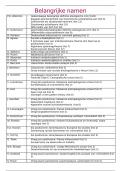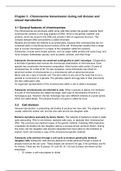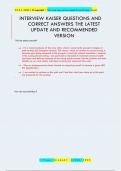Belangrijke namen
P.O. Wikström - Hedendaagse belangrijke definitie etiologische crim (hst1)
- Klaagde gescheidenheid van theoretische ontwikkeling aan (hst 4)
- Zelfcontrole als situationeel kenmerk (hst 12)
- Situationele actietheorie (hst 19)
- DEA-model van SAT (hst 19)
E. Sutherland - Geschiedkundig belangrijke definitie etiologische crim (hst 1)
- Differentiële associatietheorie (hst 8)
D. Fishbein - Onderscheid antisociaal en crimineel gedrag (hst 1)
R. Agnew - Sociale schadelijkheid (hst 1)
- 5 principes waar een interdisciplinaire theorie zich dient op te
positioneren (hst 4)
- Algemene spanningstheorie (hst 7)
- Social concern theory (hst 17)
G. Williams - Zelfzuchtige genentheorie (hst 1)
R. Trivers - Wederkerig altruïsme (hst 1)
R. Alexander - Indirecte wederkerigheid (hst 1)
H. Gintis - Indirecte wederkerigheid en straffen (hst 1)
C. Beccaria - classicisme: kosten-baten analyse (hst 2)
J. Bentham - Classicisme: utilitarisme (hst 2)
- Grote invloed voor sociale bindingstheorie v Hirschi (hst 11)
A. Quetelet - Grondlegger empiricisme (hst 2)
- Frankrijk 19de E: Cartografische school (hst 5)
C. Lomobrose - Vroeg bio positivisme: Italiaanse antropologische school (hst 2)
- Schedelstudio of craniometrie (hst 2)
E. Ferri - Vroeg bio positivisme: Italiaanse antropologische school (hst 2)
- Geen vrije wil (hst 2)
- Voorloper crime pattern theory (hst 6)
J. Garofalo - Vroeg bio positivisme: Italiaanse antropologische school (hst 2)
- Natuurlijke misdrijven (hst 2)
- Algemene routine-activiteitentheorie (hst 6)
A. Lacassagne - Vroeg soc positivisme: Franse milieuschool (hst 2)
- Omgevingsdeterminisme (hst 2)
E. Kretschmer - Vroeg bio positivisme: lichaamsbouw verklaart criminaliteit (hst 2)
W. Sheldon - Vroeg bio positivisme: verband lichaamsbouw en levensstijl, eigen
typologie (hst 2)
E.A. Hooton - bio positivisme: Amerikaanse & Europese bio studies (hst 2)
- Samenhang raciale kenmerken en criminaliteit (hst 2)
C. Goring - bio positivisme: Amerikaanse & Europese bio studies (hst 2)
G. Tarde - Vroeg soc positivisme: Franse milieuschool (hst 2)
- Sociaal leren via observatie en imitatie
W.A. Bonger - Vroeg soc positivisme: vroege Marxistische school (hst 2)
- Determinerende rol van economische ontwikkelingen (hst 2)
H. Goddard - Vroeg psych positivisme: zwakzinnigheid als oorzaak van criminaliteit (hst
2)
S. Freud - Vroeg psych positivisme: psychoanalyse, es/ich/uber-ich (hst 2)
, K. popper - Neopositivisme: kritisch rationalisme (hast 2)
M. Bunge - causaliteit: wetmatigheid en productie (hst 3)
J. Woodward - Tegenfeitelijk denken (hast 3)
D. Hume - Kritiek op criteria causaliteit, zeer cynische visie (hst 3)
J. Mackie - Soorten oorzaken (hst 3)
N. Tinbergen - De vier vragen (hast 3)
D. Andrew - Indeling v risicofactoren (hst 4)
J. Bonta - Indeling v risicofactoren (hst 4)
T. Hirschi - Grote voorstander v competitie tussen theorieën (hst 4)
- Sociale bindingstheorie (hst 11)
- Zelfcontroletheorie (hst 12)
D. Elliot - Voorstander van integratie, competitie is moeilijk in praktijk (hst 4)
G. Bruinsma - Vijf redenen voor theoretische fragmentatie (hst 4)
B. Rovers - Grondlegger v theoretische integratie binnen de criminologie (hst 4)
K-D Opp - Grote verdediger v/d algemene theorie (hst 4)
- Structureel individualisme (hst 4)
- de brede versie van RCT (hst 13)
J. Coleman - Diagram van micro-, macro- en macro-microtheorieën (hst 4 en 13)
R. Boudon - Structureel individualisme (hst 4)
S. en E. Glueck - Risicofactoren: ‘Risk factor paradigma’ (hst 4)
- belangrijke pionier van ontwikkelingsbenadering (hst18)
Rawson - VK 19de E: lid Statistical society of London, mapping (hst 5)
H. Mayhew - VK 19de E: ‘dievenkwartieren’ (hst 5)
M. Guerry - Frankrijk 19de E: Cartografische school (hst 5)
C. Shaw - Sociale desorganisatiemodel (hst 5)
H.D. McKay - Sociale desorganisatiemodel (hst 5)
R. Park - Sociale ecologie: aandacht voor evolutiedenken (hst 5)
- ‘The Struggle for Space’ (hst 5)
- Zonale theorie (hst 5)
E. Burguess - Zonale theorie (hst 5)
- Sociale leertheorie (hst 8)
W. Thomas - Symbolisch-interactionisme (hst 5)
- Ontstaan van jeugdbendes in crimele buurten: obv idee rond 4
basiswensen (hst 5)
F. Thrasher - Onderzoek rond jeugdbendes in gedesorganiseerde buurten (hst 5)
R. Sampson - Kritiek op splitsing binnen de etiologie (hst 4)
- Ecometrie (hst 5)
- leeftijdsgebonden informele controletheorie (hst 18)
- cumulatieve kwetsbaarheidstheorie (hst 18)
W. Whyte - Bijsturen van pejoratieve bijklank aan term desorganisatie door
P.O. Wikström - Hedendaagse belangrijke definitie etiologische crim (hst1)
- Klaagde gescheidenheid van theoretische ontwikkeling aan (hst 4)
- Zelfcontrole als situationeel kenmerk (hst 12)
- Situationele actietheorie (hst 19)
- DEA-model van SAT (hst 19)
E. Sutherland - Geschiedkundig belangrijke definitie etiologische crim (hst 1)
- Differentiële associatietheorie (hst 8)
D. Fishbein - Onderscheid antisociaal en crimineel gedrag (hst 1)
R. Agnew - Sociale schadelijkheid (hst 1)
- 5 principes waar een interdisciplinaire theorie zich dient op te
positioneren (hst 4)
- Algemene spanningstheorie (hst 7)
- Social concern theory (hst 17)
G. Williams - Zelfzuchtige genentheorie (hst 1)
R. Trivers - Wederkerig altruïsme (hst 1)
R. Alexander - Indirecte wederkerigheid (hst 1)
H. Gintis - Indirecte wederkerigheid en straffen (hst 1)
C. Beccaria - classicisme: kosten-baten analyse (hst 2)
J. Bentham - Classicisme: utilitarisme (hst 2)
- Grote invloed voor sociale bindingstheorie v Hirschi (hst 11)
A. Quetelet - Grondlegger empiricisme (hst 2)
- Frankrijk 19de E: Cartografische school (hst 5)
C. Lomobrose - Vroeg bio positivisme: Italiaanse antropologische school (hst 2)
- Schedelstudio of craniometrie (hst 2)
E. Ferri - Vroeg bio positivisme: Italiaanse antropologische school (hst 2)
- Geen vrije wil (hst 2)
- Voorloper crime pattern theory (hst 6)
J. Garofalo - Vroeg bio positivisme: Italiaanse antropologische school (hst 2)
- Natuurlijke misdrijven (hst 2)
- Algemene routine-activiteitentheorie (hst 6)
A. Lacassagne - Vroeg soc positivisme: Franse milieuschool (hst 2)
- Omgevingsdeterminisme (hst 2)
E. Kretschmer - Vroeg bio positivisme: lichaamsbouw verklaart criminaliteit (hst 2)
W. Sheldon - Vroeg bio positivisme: verband lichaamsbouw en levensstijl, eigen
typologie (hst 2)
E.A. Hooton - bio positivisme: Amerikaanse & Europese bio studies (hst 2)
- Samenhang raciale kenmerken en criminaliteit (hst 2)
C. Goring - bio positivisme: Amerikaanse & Europese bio studies (hst 2)
G. Tarde - Vroeg soc positivisme: Franse milieuschool (hst 2)
- Sociaal leren via observatie en imitatie
W.A. Bonger - Vroeg soc positivisme: vroege Marxistische school (hst 2)
- Determinerende rol van economische ontwikkelingen (hst 2)
H. Goddard - Vroeg psych positivisme: zwakzinnigheid als oorzaak van criminaliteit (hst
2)
S. Freud - Vroeg psych positivisme: psychoanalyse, es/ich/uber-ich (hst 2)
, K. popper - Neopositivisme: kritisch rationalisme (hast 2)
M. Bunge - causaliteit: wetmatigheid en productie (hst 3)
J. Woodward - Tegenfeitelijk denken (hast 3)
D. Hume - Kritiek op criteria causaliteit, zeer cynische visie (hst 3)
J. Mackie - Soorten oorzaken (hst 3)
N. Tinbergen - De vier vragen (hast 3)
D. Andrew - Indeling v risicofactoren (hst 4)
J. Bonta - Indeling v risicofactoren (hst 4)
T. Hirschi - Grote voorstander v competitie tussen theorieën (hst 4)
- Sociale bindingstheorie (hst 11)
- Zelfcontroletheorie (hst 12)
D. Elliot - Voorstander van integratie, competitie is moeilijk in praktijk (hst 4)
G. Bruinsma - Vijf redenen voor theoretische fragmentatie (hst 4)
B. Rovers - Grondlegger v theoretische integratie binnen de criminologie (hst 4)
K-D Opp - Grote verdediger v/d algemene theorie (hst 4)
- Structureel individualisme (hst 4)
- de brede versie van RCT (hst 13)
J. Coleman - Diagram van micro-, macro- en macro-microtheorieën (hst 4 en 13)
R. Boudon - Structureel individualisme (hst 4)
S. en E. Glueck - Risicofactoren: ‘Risk factor paradigma’ (hst 4)
- belangrijke pionier van ontwikkelingsbenadering (hst18)
Rawson - VK 19de E: lid Statistical society of London, mapping (hst 5)
H. Mayhew - VK 19de E: ‘dievenkwartieren’ (hst 5)
M. Guerry - Frankrijk 19de E: Cartografische school (hst 5)
C. Shaw - Sociale desorganisatiemodel (hst 5)
H.D. McKay - Sociale desorganisatiemodel (hst 5)
R. Park - Sociale ecologie: aandacht voor evolutiedenken (hst 5)
- ‘The Struggle for Space’ (hst 5)
- Zonale theorie (hst 5)
E. Burguess - Zonale theorie (hst 5)
- Sociale leertheorie (hst 8)
W. Thomas - Symbolisch-interactionisme (hst 5)
- Ontstaan van jeugdbendes in crimele buurten: obv idee rond 4
basiswensen (hst 5)
F. Thrasher - Onderzoek rond jeugdbendes in gedesorganiseerde buurten (hst 5)
R. Sampson - Kritiek op splitsing binnen de etiologie (hst 4)
- Ecometrie (hst 5)
- leeftijdsgebonden informele controletheorie (hst 18)
- cumulatieve kwetsbaarheidstheorie (hst 18)
W. Whyte - Bijsturen van pejoratieve bijklank aan term desorganisatie door




